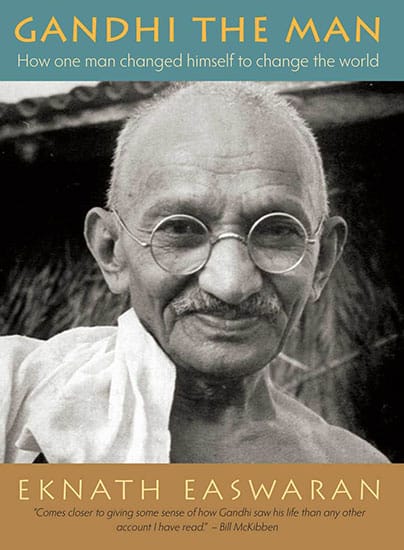-
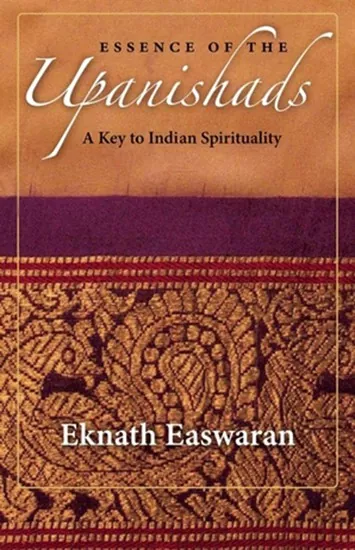 Easwaran takes one of India's classic wisdom texts, the Katha Upanishad, and explains how it embraces all the key ideas of Indian spirituality within the context of a powerful mythic quest - the story of a young hero who ventures into the land of death in search of immortality. Illustrating the insights of the Katha through analogies and everyday examples, Easwaran shows how these ancient teachings help us gain a deeper understanding of our world and ourselves today.
Easwaran takes one of India's classic wisdom texts, the Katha Upanishad, and explains how it embraces all the key ideas of Indian spirituality within the context of a powerful mythic quest - the story of a young hero who ventures into the land of death in search of immortality. Illustrating the insights of the Katha through analogies and everyday examples, Easwaran shows how these ancient teachings help us gain a deeper understanding of our world and ourselves today. -
 This warmly encouraging collection of daily readings offers immediate inspiration for readers seeking a more spiritually grounded lifestyle. Each reading is based on a quotation from one of the world’s great philosophers, poets, saints, and sages. Augustine and Einstein, Emily Dickinson and Jalaladdin Rumi, Biblical verses, Buddhist sutras, Hasidic proverbs, and Hindu Upanishads can all be found here. Each quote is accompanied by a commentary from Easwaran, explaining how the wisdom of the ages can help us here and now. Some days offer gentle reminders to slow down and be mindful. Other days give advice for changing an unwanted habit, mending a relationship, staying strong in hard times, or striving toward the peaks of spirituality described in all religions. This is a book to read in the morning to start the day right, or at night to prepare for peaceful rest. Each day, each year, brings fresh insights and inspiration.
This warmly encouraging collection of daily readings offers immediate inspiration for readers seeking a more spiritually grounded lifestyle. Each reading is based on a quotation from one of the world’s great philosophers, poets, saints, and sages. Augustine and Einstein, Emily Dickinson and Jalaladdin Rumi, Biblical verses, Buddhist sutras, Hasidic proverbs, and Hindu Upanishads can all be found here. Each quote is accompanied by a commentary from Easwaran, explaining how the wisdom of the ages can help us here and now. Some days offer gentle reminders to slow down and be mindful. Other days give advice for changing an unwanted habit, mending a relationship, staying strong in hard times, or striving toward the peaks of spirituality described in all religions. This is a book to read in the morning to start the day right, or at night to prepare for peaceful rest. Each day, each year, brings fresh insights and inspiration. -
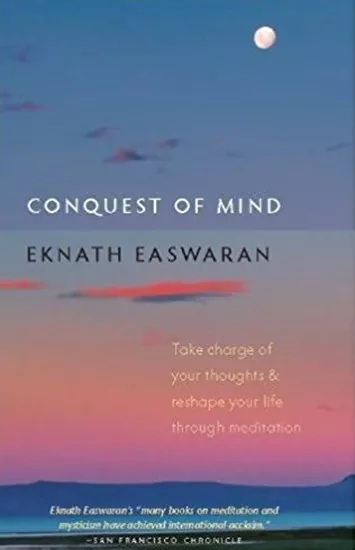 Getting caught in unwanted thoughts and emotions can feel like an inevitable part of life. But Eknath Easwaran, a world-famous spiritual teacher who taught meditation for nearly 40 years, shows a way to break free. Just as a fitness routine can result in a strong, supple body, spiritual disciplines can shape a secure personality and a resilient, loving mind. Best of all, these opportunities to grow stronger spiritually arise not only during meditation but throughout the day. Whether working with difficult colleagues, going out to eat, or responding to a child’s needs, readers learn how to try out different, wiser choices. With humor and empathy, Easwaran places timeless teachings from the Buddha and other mystics into contemporary scenes — watching a juggler on the street, taking a tennis lesson, going to the theater. Training the mind is life’s biggest adventure, and Conquest of Mind shows how this practice brings deepening relationships, increasing vitality, and a greater sense of purpose.
Getting caught in unwanted thoughts and emotions can feel like an inevitable part of life. But Eknath Easwaran, a world-famous spiritual teacher who taught meditation for nearly 40 years, shows a way to break free. Just as a fitness routine can result in a strong, supple body, spiritual disciplines can shape a secure personality and a resilient, loving mind. Best of all, these opportunities to grow stronger spiritually arise not only during meditation but throughout the day. Whether working with difficult colleagues, going out to eat, or responding to a child’s needs, readers learn how to try out different, wiser choices. With humor and empathy, Easwaran places timeless teachings from the Buddha and other mystics into contemporary scenes — watching a juggler on the street, taking a tennis lesson, going to the theater. Training the mind is life’s biggest adventure, and Conquest of Mind shows how this practice brings deepening relationships, increasing vitality, and a greater sense of purpose. -
 Among the oldest of India's spiritual texts, the Upanishads are records of intensive question-and-answer sessions given by illumined sages to their students. Widely featured in philosophy courses, the Upanishads have puzzled and inspired wisdom seekers from Yeats to Schopenhauer. Eknath Easwaran makes this challenging text more accessible by selecting the passages most relevant to readers seeking timeless truths today. His best-selling, accessible, highly readable translation and lively foreword place the teachings in a contemporary context for students and general readers alike.
Among the oldest of India's spiritual texts, the Upanishads are records of intensive question-and-answer sessions given by illumined sages to their students. Widely featured in philosophy courses, the Upanishads have puzzled and inspired wisdom seekers from Yeats to Schopenhauer. Eknath Easwaran makes this challenging text more accessible by selecting the passages most relevant to readers seeking timeless truths today. His best-selling, accessible, highly readable translation and lively foreword place the teachings in a contemporary context for students and general readers alike. -
 Chosen for their universal spiritual appeal, literary merit, and recognized wisdom, these selections are perfect subjects for meditation and daily inspirational reading. Drawing from Christian, Jewish, Hindu, Buddhist, Muslim, and Native American sacred literature, this expanded third edition serves as a useful reference and guide to world mysticism. Included are Easwaran's criteria for choosing personally transformative passages, tips on memorization, and suggestions for further reading.
Chosen for their universal spiritual appeal, literary merit, and recognized wisdom, these selections are perfect subjects for meditation and daily inspirational reading. Drawing from Christian, Jewish, Hindu, Buddhist, Muslim, and Native American sacred literature, this expanded third edition serves as a useful reference and guide to world mysticism. Included are Easwaran's criteria for choosing personally transformative passages, tips on memorization, and suggestions for further reading. -
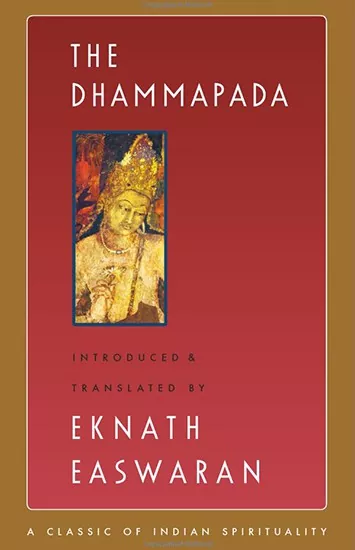 An English-language book originally published in 1986. It contains Easwaran's translation of the Dhammapada, a Buddhist scripture traditionally ascribed to the Buddha himself. The book also contains a substantial overall introduction of about 70 pages,[2] as well as introductory notes to each of the Dhammapada's 26 chapters.
An English-language book originally published in 1986. It contains Easwaran's translation of the Dhammapada, a Buddhist scripture traditionally ascribed to the Buddha himself. The book also contains a substantial overall introduction of about 70 pages,[2] as well as introductory notes to each of the Dhammapada's 26 chapters. -
 Eknath Easwaran is a foremost translator and interpreter of the much-loved Indian scripture, the Bhagavad Gita. He liked to say that his verse-by-verse commentary grew like a tree issuing directly from his life, which was so rooted in the Gita that he found a deep understanding of its teachings in the most everyday experiences – sharing a treat with young children, walking with friends down a busy street, or watching a mime in San Francisco’s Union Square. Easwaran translates each verse, relates it to our modern lives through stories and anecdotes, and gives us spiritual exercises that we can use every day. This first volume in a three-volume set covers chapters 1–6 of the Gita, and concentrates on the individual: the nature of our innermost Self, how it can be discovered in the depths of consciousness, and how this discovery transforms daily life. The introduction includes instructions in Easwaran’s universal method of passage meditation.
Eknath Easwaran is a foremost translator and interpreter of the much-loved Indian scripture, the Bhagavad Gita. He liked to say that his verse-by-verse commentary grew like a tree issuing directly from his life, which was so rooted in the Gita that he found a deep understanding of its teachings in the most everyday experiences – sharing a treat with young children, walking with friends down a busy street, or watching a mime in San Francisco’s Union Square. Easwaran translates each verse, relates it to our modern lives through stories and anecdotes, and gives us spiritual exercises that we can use every day. This first volume in a three-volume set covers chapters 1–6 of the Gita, and concentrates on the individual: the nature of our innermost Self, how it can be discovered in the depths of consciousness, and how this discovery transforms daily life. The introduction includes instructions in Easwaran’s universal method of passage meditation. -
Out of stock
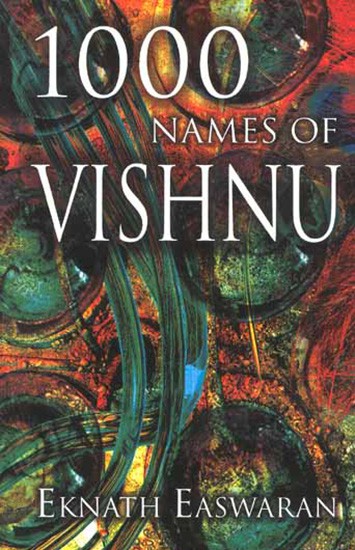 In each piece, Eknath Easwaran selects one of India's traditional thousand names of God and shows its universal significance: that these are not only names of God, but also aspects of the spark of divinity within us.
In each piece, Eknath Easwaran selects one of India's traditional thousand names of God and shows its universal significance: that these are not only names of God, but also aspects of the spark of divinity within us. -
 As we learn to rejoice in “Lord God, thou holy lover of my soul,” we begin to glimpse the transformative power of divine love in our lives. In this anecdotal, warm, and intensely practical commentary on Thomas a Kempis’s Imitation of Christ, Easwaran examines this enduring Christian passage line by line to show us what love is and how to overcome obstacles to loving more fully.
As we learn to rejoice in “Lord God, thou holy lover of my soul,” we begin to glimpse the transformative power of divine love in our lives. In this anecdotal, warm, and intensely practical commentary on Thomas a Kempis’s Imitation of Christ, Easwaran examines this enduring Christian passage line by line to show us what love is and how to overcome obstacles to loving more fully. -
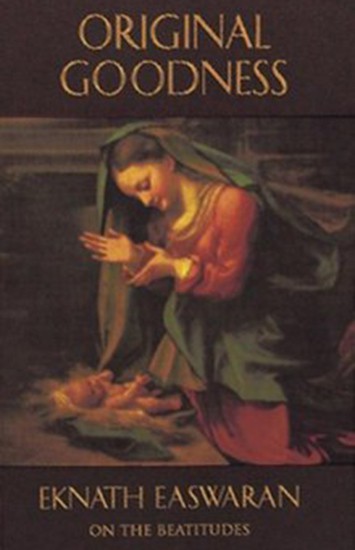 Using exhilarating quotes from numerous Christian mystics, Easwaran focuses on the idea of "original goodness," the spark of divinity that is every individual's birthright, regardless of personal assets or liabilities. The spiritual resources everyone needs love, compassion, meaning, hope, freedom from fear are already there, ready to be uncovered. Original Goodness includes instructions on how to meditate, and how to apply the power and insights of meditation to everyday life. Original Goodness is part of a three-volume series, Classics of Christian Inspiration, which collects the best writing of Eknath Easwaran on well-loved and inspiring passages and mystics in the Christian tradition.
Using exhilarating quotes from numerous Christian mystics, Easwaran focuses on the idea of "original goodness," the spark of divinity that is every individual's birthright, regardless of personal assets or liabilities. The spiritual resources everyone needs love, compassion, meaning, hope, freedom from fear are already there, ready to be uncovered. Original Goodness includes instructions on how to meditate, and how to apply the power and insights of meditation to everyday life. Original Goodness is part of a three-volume series, Classics of Christian Inspiration, which collects the best writing of Eknath Easwaran on well-loved and inspiring passages and mystics in the Christian tradition. -
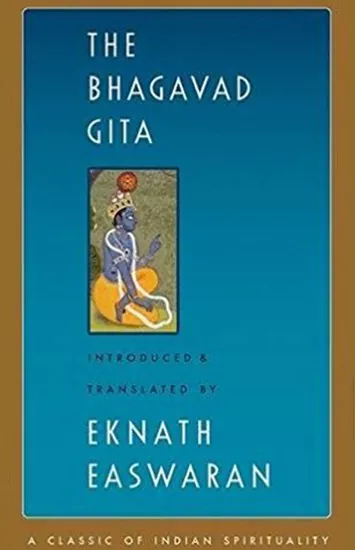 Vivid literature, lofty philosophy -- the Bhagavad Gita distills the finest in India's vast and varied culture On the morning of battle, facing Armageddon, prince Arjuna loses his nerve and refuses to fight. Krishna knows better: "Your very nature will drive you to fight. Your only choice is what to fight against." His advice gives an inspiring model of the man or woman of action -- the person who aims at goodness in a world of conflict and change. In this translation, the Gita stands out as a book of choices -- direct, practical, universal. The introduction sketches the background of the poem and gives clear, contemporary explanations of the basic ideas of Indian philosophy: karma, reincarnation, yoga, freedom. Separate chapter introductions outline the drama as it unfolds.In the Bhagavad Gita, Prince Arjuna asks direct, uncompromising questions of his spiritual guide on the eve of a great battle.In this best-selling and expanded edition of the most famous --and popular -- of Indian scriptures, Eknath Easwaran contextualizes the book culturally and historically and explains the key concepts of Hindu religious thought and the technical vocabulary of yoga. Chapter introductions, notes, and a glossary help readers understand the book's message. Most importantly, this translation uses simple, clear language to impart the poetry, universality, and timelessness of the Gita's teachings.
Vivid literature, lofty philosophy -- the Bhagavad Gita distills the finest in India's vast and varied culture On the morning of battle, facing Armageddon, prince Arjuna loses his nerve and refuses to fight. Krishna knows better: "Your very nature will drive you to fight. Your only choice is what to fight against." His advice gives an inspiring model of the man or woman of action -- the person who aims at goodness in a world of conflict and change. In this translation, the Gita stands out as a book of choices -- direct, practical, universal. The introduction sketches the background of the poem and gives clear, contemporary explanations of the basic ideas of Indian philosophy: karma, reincarnation, yoga, freedom. Separate chapter introductions outline the drama as it unfolds.In the Bhagavad Gita, Prince Arjuna asks direct, uncompromising questions of his spiritual guide on the eve of a great battle.In this best-selling and expanded edition of the most famous --and popular -- of Indian scriptures, Eknath Easwaran contextualizes the book culturally and historically and explains the key concepts of Hindu religious thought and the technical vocabulary of yoga. Chapter introductions, notes, and a glossary help readers understand the book's message. Most importantly, this translation uses simple, clear language to impart the poetry, universality, and timelessness of the Gita's teachings. -
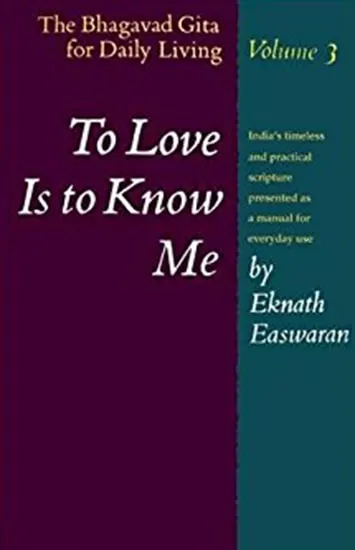 To understand death, a person must try to understand the purpose of life and the relationship between life and death. The two are partners, each providing a context for the other. Death is not a period, but merely a pause on a long journey. When life and death are accepted as having real meaning and purpose, and death is understood and accepted as part of the human journey, then the fear of death disappears and life can be lived fully. This book is about the relationship between life and death, and the 'how and why' of organizing one's life in a way that leads to expansion and growth, and that is helpful in preparing for the transition we call death.
To understand death, a person must try to understand the purpose of life and the relationship between life and death. The two are partners, each providing a context for the other. Death is not a period, but merely a pause on a long journey. When life and death are accepted as having real meaning and purpose, and death is understood and accepted as part of the human journey, then the fear of death disappears and life can be lived fully. This book is about the relationship between life and death, and the 'how and why' of organizing one's life in a way that leads to expansion and growth, and that is helpful in preparing for the transition we call death. -
 Eknath Easwaran is a foremost translator and interpreter of the much-loved Indian scripture, the Bhagavad Gita. In this verse-by-verse commentary on the Gita, Easwaran translates each verse, relates it to our modern lives through stories and anecdotes, and gives us spiritual exercises that we can use every day. This second volume in a three-volume set covers chapters 7 – 12 of the Gita, and builds a bridge between scientific knowledge and spiritual wisdom by showing the indivisible unity governing all creation.
Eknath Easwaran is a foremost translator and interpreter of the much-loved Indian scripture, the Bhagavad Gita. In this verse-by-verse commentary on the Gita, Easwaran translates each verse, relates it to our modern lives through stories and anecdotes, and gives us spiritual exercises that we can use every day. This second volume in a three-volume set covers chapters 7 – 12 of the Gita, and builds a bridge between scientific knowledge and spiritual wisdom by showing the indivisible unity governing all creation. -
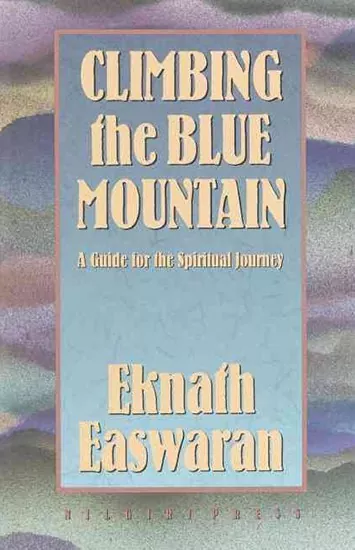 Sixteen lively essays illuminate different aspects of the spiritual journey. The introduction presents the author as a “travel agent” on a journey to the spiritual world within us. The essays are metaphorical travel brochures, invitations to take the plunge into self-discovery through the adventure of meditation. Edited from his extemporaneous talks, this inspiring collection of essays gives the flavor of hearing this great spiritual teacher and storyteller in person. Easwaran successfully combines his Eastern and Western wisdom, which includes a thorough knowledge of English literature, into an eight-point program usable by followers of all religious traditions.
Sixteen lively essays illuminate different aspects of the spiritual journey. The introduction presents the author as a “travel agent” on a journey to the spiritual world within us. The essays are metaphorical travel brochures, invitations to take the plunge into self-discovery through the adventure of meditation. Edited from his extemporaneous talks, this inspiring collection of essays gives the flavor of hearing this great spiritual teacher and storyteller in person. Easwaran successfully combines his Eastern and Western wisdom, which includes a thorough knowledge of English literature, into an eight-point program usable by followers of all religious traditions.

